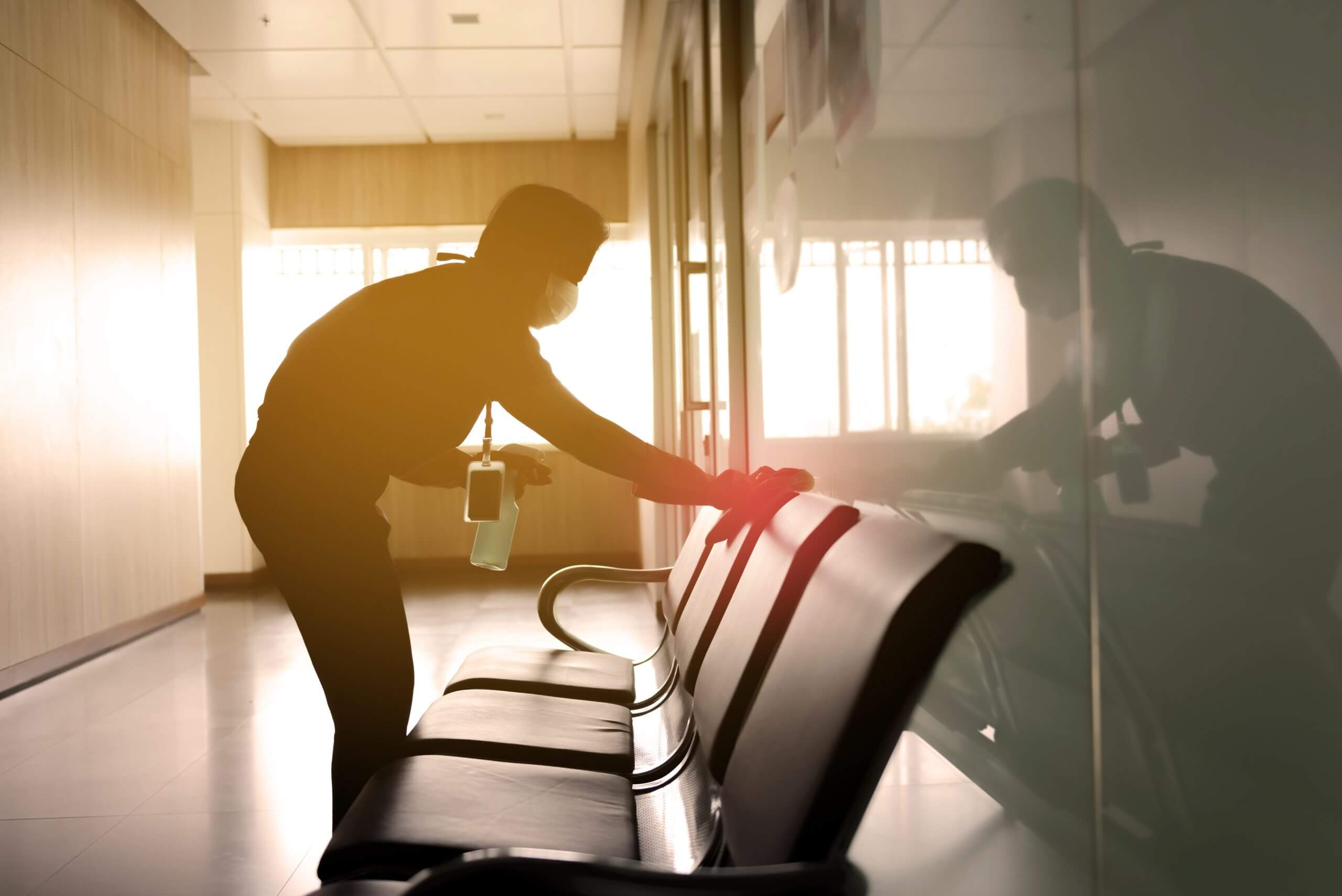The onset of the COVID-19 pandemic challenged the cleaning industry and changed the public’s expectations of cleanliness, specifically in places like grocery stores, airports, restaurants and hotels. Looking back on the past year, it is safe to say that facilities are no longer cleaning just for appearance. Heightened infection prevention protocols will become a mainstay to ensure employees, customers and other building visitors are entering a safe and healthy environment. As we continue to make progress in our fight against COVID-19, it’s more important than ever to understand how this crisis has transformed the cleaning industry.
The Pandemic’s Lasting Impact
Much has changed since March 11, 2020 when the World Health Organization (WHO) officially declared a global pandemic, including:
Supply chain stability is more important than ever.
When the pandemic hit, supply chains were overwhelmed by the increased demand for cleaning chemicals, toilet paper, hand sanitizer and personal protective equipment (PPE). In fact, the demand for hand sanitizer alone reportedly increased by 1,400% between December 2019 and January 2020, requiring manufacturers to add more production shifts. Consequently, many organizations struggled to secure cleaning and disinfectant solutions. In some cases, this meant that cleaning professionals were working with products they had not been properly trained to use. Moving forward, it will be important for manufacturers and facilities to have an adequate emergency stockpile of solutions available and provide proper training so that product safety and efficacy aren’t compromised when a crisis occurs.
The public is more concerned with cleanliness and hygiene.
Before COVID-19, many people assumed “if it smells clean, it must be clean.” That is no longer the case, as statistics show the public’s increased concern for cleanliness and hygiene. For example, in a Nov. 2020 Harris Poll, 53% of respondents stated that the level of cleanliness in a hotel would influence their intent to book a future stay at the property. Another study revealed 82% of customers agreed common areas within a restaurant should be visibly wiped down regularly. The public is also more aware of their own personal hygiene. Studies found that 90% of Americans are washing their hands more frequently, thoroughly or longer during the pandemic and nine in 10 Americans claim they’ll continue these handwashing best practices after the pandemic. Conducting cleaning regularly and making hand hygiene essentials accessible will help instill confidence among building occupants and visitors.
Scrutiny around product efficacy increases.
The public and facility managers have become more skeptical of cleaning solutions following the United States Food and Drug Administration’s (FDA) recalls of contaminated hand sanitizer and companies making false claims about product efficacy against COVID-19. Before the United States Environmental Protection Agency (EPA) launched List N, facility managers did not have much information about what products were effective against the virus. As a result, facility managers will have to carefully review the manufacturer’s instructions to make sure products are effective against pathogens of concern and deliver on their performance claims.
Sustainability becomes top of mind.
The pandemic has resulted in a sharp increase in the use of cleaning chemicals, masks, gloves, disinfectant wipes and more. Curbing excessive waste is key to reducing the environmental impact of cleaning programs. Many facilities are also looking for ways to enhance indoor air quality and the overall health and safety of building occupants through certification programs like the U.S. Green Building Council’s Leadership in Energy and Environmental Design (LEED) and Green Seal. Looking ahead, it will be important for facility managers to take a closer look at how their chemicals, tools and equipment impact people and the planet, and work with service providers that share their sustainability mindset.
Custodians gain recognition and respect.
Cleaning personnel are now seen as essential workers and heroes who help protect people against potentially deadly pathogens. In fact, some have been working 12-hour shifts right alongside doctors throughout the pandemic. In a June 2020 survey, 56% of respondents said they regard custodians much more highly than they did before the pandemic. It will be important for the industry to continue to stand by cleaning professionals and provide them with the necessary education, tools and PPE so they can do their jobs safely.
Meeting New Standards of Cleanliness
In the wake of the pandemic, facilities must make long-term commitments to their cleaning programs, which means investing in well-trained cleaning staff, effective cleaning solutions and emergency stockpiles to give customers and employees peace of mind. This global crisis has brought a newfound appreciation for the cleaning industry, with more people recognizing the role that cleanliness plays in protecting public safety. As we move forward, the cleaning industry will continue to be a vital resource for reducing the spread of harmful pathogens and saving lives.
Make a long-term commitment to cleanliness with the help of GSF USA. For more information, contact the GSF office nearest you. Follow us on LinkedIn and Facebook for the latest updates.
